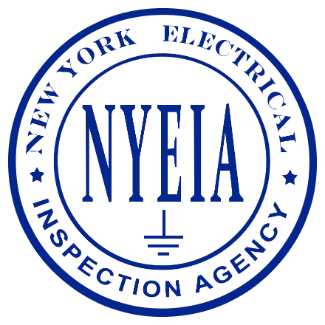In one of the most sobering cases in U.S. electrical contracting history, a licensed electrician was convicted of second-degree manslaughter after a botched installation led to the death of a 12-year-old boy. The tragedy underscores the vital importance of adhering to electrical codes and obtaining proper inspections, both for professionals and homeowners.
The Case: A Preventable Death
Richard E. Salz, a Connecticut electrician with over 30 years of experience, and even a former electrical inspector himself, was found guilty of reckless workmanship that led to a fatal electrical fire. Salz had installed a 120V heater on a 240V circuit, improperly grounded the system, and bypassed multiple critical safety codes. His actions sparked a fire in the basement of an East Haven home in December 1988, ultimately killing young Burton Gorman III from smoke inhalation.
What’s more disturbing is that Salz completed this job without getting any permits. Investigators later revealed 19 separate code violations, including faulty grounding, splicing wires outside the electrical panel, using a defective thermostat, and placing a baseboard heater directly beneath an outlet, an outright code violation.
Despite Salz’s defense that he acted negligently but not recklessly, the Connecticut Supreme Court upheld the jury’s conviction. The court found overwhelming evidence that Salz, given his credentials and experience, knew the risks and consciously disregarded them.
Legal and Financial Consequences
Salz’s conviction marked a legal milestone: the first known case in the U.S. where an electrician was convicted of manslaughter due to substandard work. He was sentenced to 10 years in prison, with five years to be served. In addition, the incident opened him up to civil liability and permanent damage to his reputation and livelihood.
But the legal implications don’t stop with the electrician. Homeowners who authorize unpermitted work, or fail to demand proper inspections, can also face serious consequences, especially if injuries or deaths occur as a result.
What This Means for Electricians and Contractors
Electricians and Contractors are legally and morally obligated to follow the National Electrical Code (NEC) and local regulations. Skipping steps, using defective or repurposed equipment, or failing to ensure grounding and bonding aren’t just code violations, they’re potentially fatal oversights.
This case reinforces the need for electricians and contractors to:
- Pull required permits before any electrical work begins.
- Request inspections after completing work, especially when installing new circuits or heating equipment.
- Stay current with NEC updates and local code amendments.
- Reject shortcuts—no matter the job size or who the customer is.
Even highly experienced professionals like Salz are not above the law, or immune to the consequences of negligence.
What This Means for Homeowners
Homeowners may think they’re saving money by skipping inspections or hiring someone “under the table.” But this tragic event proves that doing so can be deadly.
Homeowners should:
- Always hire experenced electricians with a proven track record.
- Insist on pulling permits for any electrical work.
- Request a third-party electrical inspection to confirm code compliance.
- Understand their liability—if an unpermitted or faulty installation causes a fire, they could be held personally responsible and/or denied insurance coverage.
The Bottom Line: Inspection Is Not Optional
The story of Richard Salz is not just a legal case, it’s a cautionary tale. A single act of carelessness, compounded by the absence of inspections, resulted in a child’s death and a man’s imprisonment.
Electrical work is not an area to take shortcuts. Whether you’re a professional contractor or a homeowner, ensuring a licensed inspector reviews the work can literally mean the difference between life and death.
If you’re planning electrical upgrades or installations, get an inspection. It’s the law, it’s smart business, and most importantly, it’s how we protect lives.
Follow Up of Case
Follow-Up: Sentence Affirmed in Landmark Electrician Manslaughter Case
In a follow-up to the tragic case that underscored the importance of electrical safety and inspections, the sentencing of Richard E. Salz, Sr., a licensed electrician convicted of second-degree manslaughter, was upheld upon review on August 2, 1994. Salz had been sentenced to 10 years in prison, suspended after 5 years served, followed by a period of probation, for the reckless installation of an electric baseboard heater that led to the death of 12-year-old Burton Gorman III in 1988.
Salz represented himself during the sentence review hearing, despite being offered legal counsel and a continuance. He argued that his sentence was excessive, calling himself a non-violent, productive member of society and claiming the fatal incident stemmed from a mistake rather than intentional misconduct. He requested a sentence reduction to three years followed by probation.
However, the reviewing judges found his sentence appropriate, citing overwhelming evidence of code violations and dangerous electrical work, not only in the basement where the fire started but also in other parts of the home. The heater had been miswired to 220 volts instead of the required 120 volts, with the grounding mechanism also improperly installed, preventing the system from safely shutting off. The result was a fire that took the life of a sleeping child.
The court noted Salz’s lack of remorse and continued attempts to shift blame. Additionally, he had a prior criminal record, including probation violations for multiple counts of larceny, and had failed to make court-ordered restitution in those cases.
Ultimately, the court concluded that the original sentence was fair and proportionate, especially considering the severity of the consequences. The deadly outcome of Salz’s reckless actions reinforced the message that both homeowners and electricians must adhere strictly to safety codes and obtain proper inspections to avoid similar tragedies.
Sentence affirmed.
